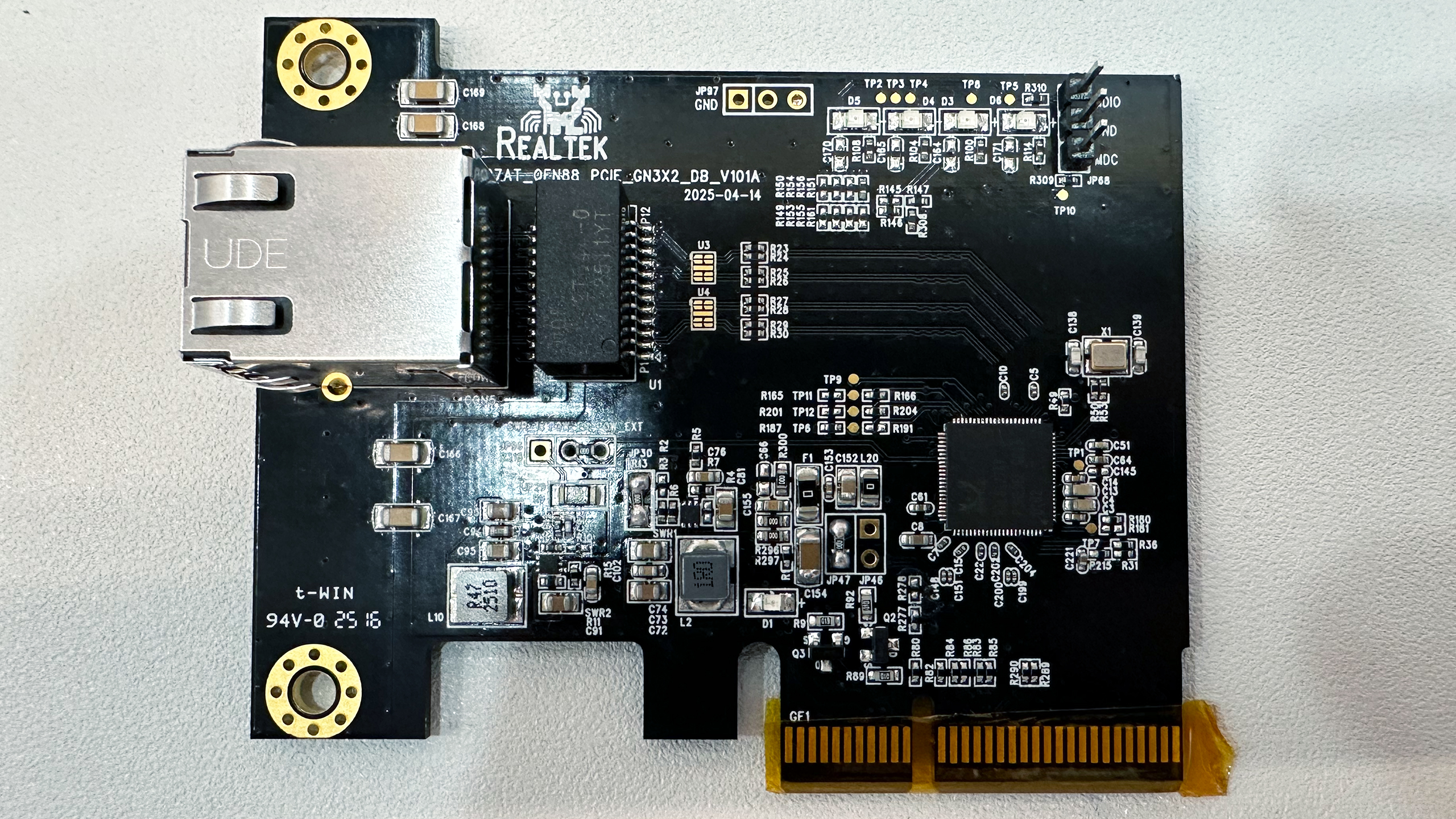We Should Immediately Nationalize SpaceX and Starlink
-
........ only after they were betrayed by Hitler after they allied themselves with the Nazis to invade Poland.
And then raped and killed civilians in the countries they "liberated" by forcing millions of people from their Eastern European vasal states to die to protect the Russians.
Then replaced Nazism with a slightly different authoritarian system that opresses it's people and performs ethnic cleansings, but has a red and gold cost of paint.
And then also exploited the global south, but just weren't as good at it as the west, and filtered even more of what was exploited up the chain to the party leaders.
And tried to make up for that lack in ability to exploit the global south by exploring Eastern Europe.
Communist we're allied with the nazis at the start of the war and as someone who's great grandmother fled Poland to the UK to avoid being rapes and murdered by the red army, I will never forgive them for that.
only after they were betrayed by Hitler after they allied themselves with the Nazis to invade Poland.
This is literally pro-nazi historical revisionism. I've made a detailed response to this load of bullshit here, if you care to learn some history about it. Please do read that in good faith and respond point by point if you actually wanna get educated on the subject.
Regarding deportations in time of war, I agree it was a failed policy and I don't support them generally, it happens that systems and political ideologies you support make mistakes. This was one of them. It's still extremely minor compared to actual imperialism and genocide committed by western states in times of peace while plundering billions of people in the global south, and it's something that happened during a period of 10 tumultuous war/preparation years and never happened again, unlike the constant imperialism of the west.
Again proving that you don't care about brown people and your entire "leftist" ideology is supported on CIA propaganda.
-
Isn't that part of the grift?
At the time it looked like one of the main reasons to launch Starlink was to provide SpaceX with a new market, much larger than the usual space launching stuff. Also this meant Felon could get subsidies through 2 different companies.
Isn't that part of the grift?
Isn't what?
I mean the reason for starlink was that they could, and they could do it for cheaper than anyone else because they would be launching at cost.
Also, falcon doesn't really get subsidies for launching. SpaceX got a grant for the rural broadband infrastructure thing, but that's like a one time thing, it doesn't really pay for ongoing launches.
-
This post did not contain any content.
The nationalization of SpaceX will mean a slowdown in development, like in the case of NASA.
-
Has anyone considered funding NASA?
They made rockets that didn't explode with duct tape and a TI-83 calculator.
What "they made" 50 years ago is of little value now. Expertise matters, and it's lost with time passing.
Still - yes. Nationalization is a bad solution because it gives the state power to nationalize. Seems a truism.
Just let NASA work in its normal role. Instead of replacing that with SpaceX contracts.
-
I'm referring to how the post title shared here is in first person as if everyone is American. If that's unrelated to exceptionalism then oops.
You never clicked on the link, did you?
-
The nationalization of SpaceX will mean a slowdown in development, like in the case of NASA.
sounds good who gives a shit
-
Nasa with less risk aversion. If a Nasa rocket blows up that's big news. If a Space X rocket blows up, that's a Tuesday.
yeah but if SpaceX becomes NASA then what
-
Those are different to taking over private companies. The government should, imo, compete against private enterprise in those areas, in turn bringing prices down and making it better for the taxpayers.
NASA is government owned. Look at the state of it. Do you think the government taking over SpaceX would really be a good thing?
You think the state of NASA isn't caused by privately funded politicians?
-
This post did not contain any content.
What? Why?
.he wants to create a 3rd party, let him. -
The nationalization of SpaceX will mean a slowdown in development, like in the case of NASA.
Ignoring the lack of evidence or argument presented here for that, I'd rather take a slowdown than Musk get a single new dollar.
-
Don't give bail-outs to billionaires.
Then don't reimburse him.
-
The nationalization of SpaceX will mean a slowdown in development, like in the case of NASA.
Because American politicians would rather spend the money on engaging international wars. NASA will only get the funding it desperately needs if one of US' rivals one up them, like how the launch of Sputnik spurred the race to the moon.
-
These things only exist and are as good as they are because they’re not government owned and run.
Look at NASA compared to SpaceX to see why this would be an absolutely terrible move. Government is where projects like these go to die, while making every politician and contractor involved filthy rich.
It dying is better than it being in the hands of a billionaire fascist.
-
Then the UN should start their own starlink-like company. Nothing is stopping them.
In an ideal world, starlink should be internationalized by the U.N.
We don't need half a dozen companies in every developed nation putting their own garbage in orbit just to provide rural internet for a minority of a minority of the planet. Those systems are in orbit, they can provide internet to the overwhelming majority of humans.
But instead we're gonna fuck up our ability to use a load of space telescopes needed to help see potentially dangerous asteroids, and all these satellites burning up in orbit are gonna fuck up the atmosphere, opening up the hole in the ozone layer even more.
-
yeah but if SpaceX becomes NASA then what
Learn from SpaceX progress. Return to NASA risk aversion. Trial new designs in 20 years, repeat.
-
only after they were betrayed by Hitler after they allied themselves with the Nazis to invade Poland.
This is literally pro-nazi historical revisionism. I've made a detailed response to this load of bullshit here, if you care to learn some history about it. Please do read that in good faith and respond point by point if you actually wanna get educated on the subject.
Regarding deportations in time of war, I agree it was a failed policy and I don't support them generally, it happens that systems and political ideologies you support make mistakes. This was one of them. It's still extremely minor compared to actual imperialism and genocide committed by western states in times of peace while plundering billions of people in the global south, and it's something that happened during a period of 10 tumultuous war/preparation years and never happened again, unlike the constant imperialism of the west.
Again proving that you don't care about brown people and your entire "leftist" ideology is supported on CIA propaganda.
I took one look at you describing the "liberating" of Poland by the soviets because some of it belongs to different modern day countries and new you weren't arguing in good faith. Invading another country and stealing their land doesn't magically become """liberation""" just because it was stolen by someone else first.
You can use this same logic to excuse the nazi invasion of certain countries as well.
-
I took one look at you describing the "liberating" of Poland by the soviets because some of it belongs to different modern day countries and new you weren't arguing in good faith. Invading another country and stealing their land doesn't magically become """liberation""" just because it was stolen by someone else first.
You can use this same logic to excuse the nazi invasion of certain countries as well.
doesn't magically become """liberation""" just because it was stolen by someone else first
No, it becomes liberation when majority-Ukrainian regions oppressed under the Polish nationalist state without any mode of representation, recognition of their language, and under bourgeois rule, instead obtain Ukrainian representation and institutions and recognition of its language as an official language. I assume you would know this since you seem to care so much about Ukrainians?
-
This post did not contain any content.
Best time would've been when he pulled that stunt in Ukraine, second best time is now
-
Nice 30-year-old Fox News talking points you got there. Time to go to bed, grandpa.
What points are you talking about exactly?
-
We shot a space telescope half way to the sun and are observing the dawn of the entire universe.
And you just wanna see a bigger penis rocket

Sending something one way into space isn’t hard. Having it come back is. Having it, and all the parts that it took to get it there and back, be safely returned to earth and able to be reused is stupidly hard.
-
-
-
Bluesky finally got Activity Notifications, you can now follow news and accounts with it.
Technology 2
2
-
This Week In Security: That Time I Caused A 9.5 CVE, IOS Spyware, And The Day The Internet Went Down
Technology 1
1
-
‘Alexa, what do you know about us?’ What I discovered when I asked Amazon to tell me everything my family’s smart speaker had heard
Technology 1
1
-
-
-





